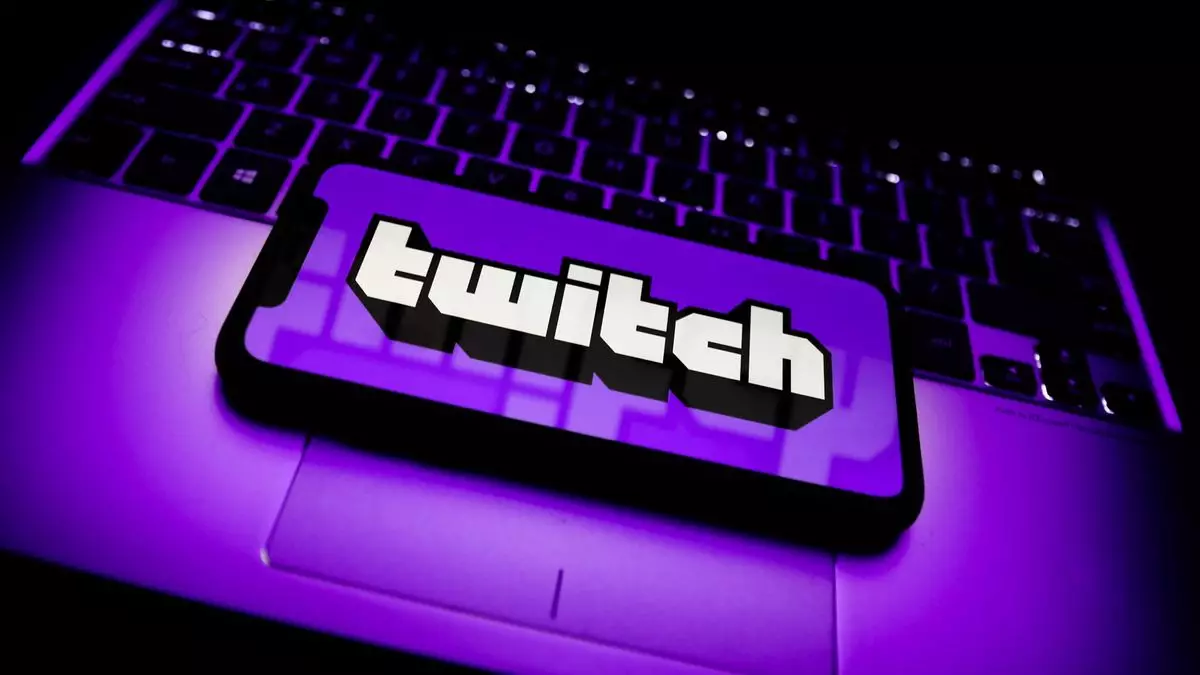The digital landscape for livestreaming is ever-evolving, and platforms like Twitch must continuously adapt to emerging issues related to content moderation and community standards. Recently, Twitch implemented a new policy requiring streamers to label content that involves “politics and sensitive social issues.” However, less than a week after its introduction, the platform amended this rule to exempt discussions surrounding “lived experiences,” a move that elicits both relief and skepticism among content creators and viewers alike. This article delves into the nuances of Twitch’s policy changes and their broader implications.
Initially, Twitch’s decision to classify streams dealing with sensitive topics as requiring a Content Classification Label (CCL) was framed as a measure to enhance transparency and viewer awareness. Following a series of incidents that exposed antisemitism and Islamophobia among its ranks, Twitch sought to take a stand against harmful discourse. Despite these admirable intentions, the announcement was swiftly met with backlash, particularly from LGBTQ+ streamers, who felt marginalized by the stipulations. To mitigate these concerns, Twitch reassured its community that sharing personal lived experiences would not necessitate labeling.
However, the change has not placated all critics. Removing explicit mentions of LGBTQ+ and reproductive rights from the list of topics requiring labels is a step forward, but ambiguity still permeates the policy. For instance, the requirement that content be deemed “polarizing or inflammatory” raises questions about who determines these classifications. For marginalized groups, the risk remains that their genuine discussions about rights and identities could be distorted or mischaracterized as political provocations by those holding opposing views.
The recent amendments highlight an ongoing and crucial debate: what constitutes “political content”? Many in the Twitch community express valid concerns about the subjectivity inherent in determining whether discussing one’s personal rights—such as access to abortion or experiences with gender transition—is merely personal or overly political. Other community members have pointed out that this ambiguous delineation can easily place content creators at risk of censorship or backlash.
LGBTQ+ streamers have taken to Twitch’s UserVoice forum to voice their discontent with the policy. With thousands joining the call for clearer definitions and even stronger protections, it demonstrates that users remain uneasy about being categorized unfairly within the political sphere. The outcome of these discussions is vital not only for Twitch but also for the way digital platforms interact with sensitive human rights topics.
Community Engagement and Corporate Responsibility
Twitch’s fluctuating policies underscore the growing pressures that companies face in moderating user-generated content. The platform’s initial response to escalating claims of hate speech signals a desire to take ethical stances. Still, they must tread carefully in defining the line between legitimate discourse and harmful rhetoric.
Some content creators argue that Twitch should require consultation with marginalized communities when forming these policies. Engaging with diverse voices, especially those targeted by hate speech, is essential to build a comprehensive understanding of what constitutes a safe and respect-driven community. The platform must acknowledge that the existence of minority creators is inherently a political act, especially within settings where their rights and identities are contested.
Moving forward, Twitch’s ongoing struggle to balance free speech and content moderation will require thoughtful deliberation and inclusive dialogue. The lack of an objective standard for what constitutes harmful content adds an unnecessary burden on creators, who may face disproportionate scrutiny in a platform designed for expression and community engagement.
While Twitch’s revised guidelines offer some reprieve by allowing personal experiences to stand apart from political discussions, the vagueness of the language still invites potential misuse. To foster a truly inclusive platform, the company must pursue the development of more precise criteria that not only protect distinct voices but also uphold ethical standards.
The crux of the matter lies in fostering a culture where all creators feel safe to share personal narratives without fear of unjust labeling or harassment. In doing so, Twitch has the opportunity to not just reflect societal changes but actively participate in shaping a diverse environment where every voice matters—equal under a banner of human rights rather than reduced to mere political markers.
With an eye toward future reformulation of its policies, Twitch has an opportunity to not only correct its course but become a leader in digital ethics, ensuring that all community members are afforded the dignity and respect they deserve in their creative expressions.


Leave a Reply